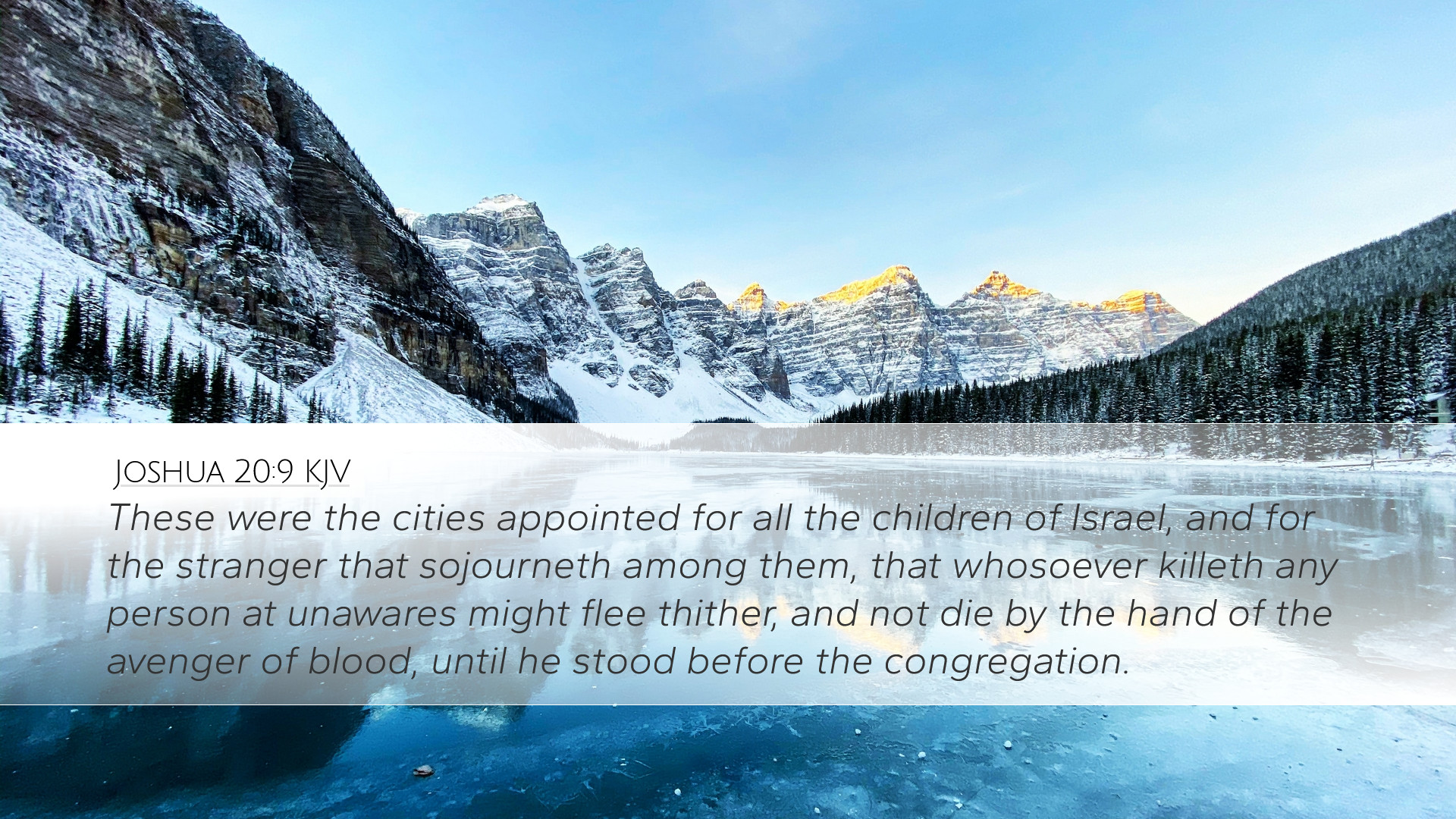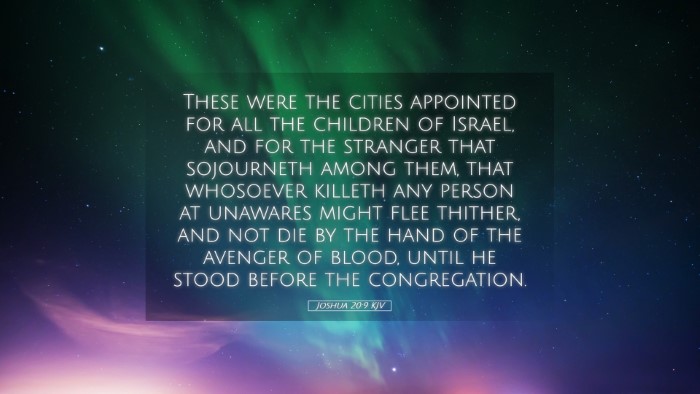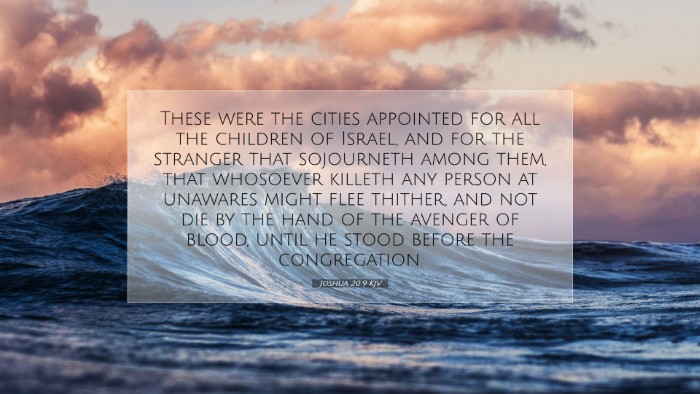Old Testament
Genesis Exodus Leviticus Numbers Deuteronomy Joshua Judges Ruth 1 Samuel 2 Samuel 1 Kings 2 Kings 1 Chronicles 2 Chronicles Ezra Nehemiah Esther Job Psalms Proverbs Ecclesiastes Song of Solomon Isaiah Jeremiah Lamentations Ezekiel Daniel Hosea Joel Amos Obadiah Jonah Micah Nahum Habakkuk Zephaniah Haggai Zechariah MalachiJoshua 20:9
Joshua 20:9 KJV
These were the cities appointed for all the children of Israel, and for the stranger that sojourneth among them, that whosoever killeth any person at unawares might flee thither, and not die by the hand of the avenger of blood, until he stood before the congregation.
Joshua 20:9 Bible Commentary
Commentary on Joshua 20:9
Joshua 20:9 states: "These were the cities appointed for all the children of Israel, and for the stranger that sojourneth among them, that whosoever killeth any person at unawares might flee thither, and not die by the hand of the avenger of blood, until he stood before the congregation."
Overview of the Passage
This verse concludes the account of the cities of refuge established by the Israelites. The cities served as safe havens for individuals who accidentally caused the death of another, shielding them from retribution until they could stand trial. This passage paints a picture of God’s justice tempered with mercy, a critical theme in the biblical narrative.
Key Themes and Insights
-
Divine Provision:
Matthew Henry emphasizes that the appointment of these cities illustrates God’s provision for His people. The cities of refuge signify that God cares about justice and mercy, ensuring that those who make unintentional mistakes are not condemned without due process.
-
The Role of the Avenger:
Albert Barnes notes the cultural context of the avenger of blood (the go'el), who had a responsibility to avenge a family member's death. However, this legal framework ensured that such avenging was not conducted recklessly, thus highlighting the balance between familial duty and the pursuit of justice.
-
Justice and Mercy:
Adam Clarke discusses how this system reflects the nature of God's justice. It ensures that mercy is extended even in serious matters like homicide. This provision forms the basis for understanding how God's love coexists with His righteousness.
-
Citizenship and Inclusion:
The verse indicates that these cities were not exclusively for Israelites but also available for the stranger or sojourner. This aspect underscores God's inclusivity and the idea that His justice is available for all who seek refuge, symbolizing a foreshadowing of the gospel message in Christ.
Theological Implications
This concept of refuge resonates throughout the scriptures, as seen in various biblical themes of seeking safety and finding shelter in God. The idea reflects the New Testament doctrine of Christ as our refuge. Just as the cities provided physical safety, Christ offers spiritual safety from judgment for those who trust in Him.
Pastoral and Practical Applications
For pastors and church leaders, this passage encourages the establishment of communities where grace and justice are similarly interwoven. The church should be a place where individuals can seek refuge, experience forgiveness, and understand God’s mercy in their lives, especially in times of unintentional sin or failure. The cities of refuge can be seen as a model for church communities in fostering environments where healing and support are prioritized.
Conclusion
Joshua 20:9 is more than a historical account; it establishes a theological framework around justice, mercy, and community responsibility. It compels today’s believers to reflect on how they can embody these principles in their lives and churches, ensuring that they are places of refuge and reconciliation.


